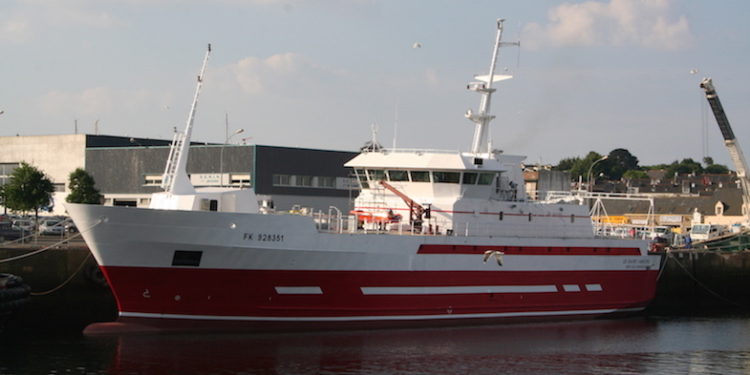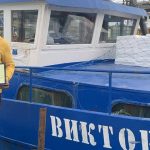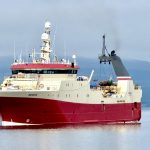MSC certification has been awarded to the Crozet fishery for toothfish, which a group of French operators pursue with seven longline vessels. According to Sapmer, the certification is in line with the 2013 certification for the Kerguelen toothfish fishery, recognising the work done by stakeholders to to safeguard resources and ensure a sustainable fishery.
The French vessel owners within the SARPC (Reunion Freezer Longliner Syndicate) group were awarded the Marine Stewardship Council (MSC) certification at the beginning of 2017 following evaluation by MNHN (the National Museum of Natural History) which was subsequently validated by CCAMLR. The seven longliners are each allocated quotas by the TAAF (French Southern and Antarctic Territories) administration which manages the fishery.
The certification is based on a set of criteria that include ensuring that fishing effort remains at a level that ensures the sustainability of the fish
population, that fishing activities are managed in such a way as to maintain the structure, productivity, function and diversity of the ecosystem, and that there is an efficient and transparent management system in place that controls the number of toothfish stakeholders, ensuring the sustainability of the fishery.
According to Sapmer, audits are carried out annually to evaluate if these criteria are being followed, which conditions the certification being kept.
‘Like Kerguelen, the entire ecosystem of the EEZ of Crozet presents a unique diversity that must imperatively be preserved while allowing an economically viable activity,’ A Sapmer spokesman said. ‘The members of the SARPC, conscious of these environmental issues, participate very actively in the scientific and exploratory campaigns. Compliance with the management plan as agreed in September 2015 between the TAAF administration and all stakeholders in the fishery is thus seen as an essential guarantee of the sustainability of the resource by protecting the marine fauna, and specifically by limiting by-catches and juveniles. Bird mortality has thus been reduced or virtually eliminated through the introduction of specific measures.’
The members of the SARPC are still actively collaborating with the authorities in the fight against illegal fishing thanks to a public-private partnership responsible for the management of patrol vessel Osiris.
‘The members of the SARPC would like to remind everyone that this certification was obtained thanks to the implementation of the best practices that have scrupulously been respected during their past fishing campaigns, which underlines the imperative need not to call into question the management plan adopted in 2015 by the Prefect of the TAAF administration and constantly ensure that the utmost professionalism and transparency, from authorisation to control of the toothfish fishery, is always in place.’









